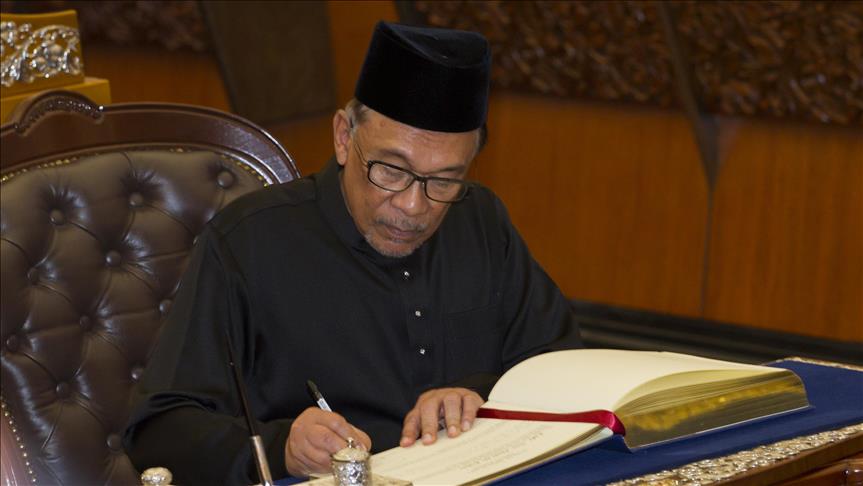PROFILE - Anwar Ibrahim plays key role in Malaysia's politics
Anwar, prime minister-in-waiting, vows to support Mahathir Mohamad’s parliamentary reforms

By Faruk Zorlu
ANKARA
Malaysia's Prime Minister-in-waiting Anwar Ibrahim with his political background has played a key role in the political history of Asia Pacific.
Anwar has been the main opponent of the ruling party, which has been in power since independence in 1957, after falling out with the government in the late 1990s.
Anwar was born into a comfortable
After enrolling at the University of Malaya in Kuala Lumpur, he started to shoulder
He became the president of National Union Of Malaysian Muslim Students and also the president of University of Malaya Malay Language Society in 1968.
In 1971, he founded the Muslim Youth Movement of Malaysia and served as its president until 1982.
In
Between 1975 and 1982, he used to represent the entire Asia-Pacific region at the World Assembly of Muslim Youth.
Later on, Anwar stepped into the United Malays National Organization (UMNO), which was a major political party in the National Alliance in 1982, led by then
Anwar served as the minister of culture, youth
Between 1986 and 1991, he held the Ministry of Education and later he was appointed as the finance minister in 1991.
Despite becoming Mahathir's Deputy Prime Minister in 1993, Anwar’s relationship with the prime minister began to deteriorate.
The 1990s saw Anwar's political downfall as he was charged with corruption.
Prison to parliament
In 1998, Anwar, the then ambitious deputy prime minister, was accused of several charges and sacked by Mahathir. He was later handed a jail term over some of the charges.
He spent six years in
After his release, Anwar held a series of teaching positions at the University of Oxford, Johns Hopkins University, and Georgetown University in Washington, D.C.
After his ban from public office expired in 1998, he focused on his political career.
During 2013 general election, he was the leader of the opposition coalition -- People’s Alliance coalition (People's Pact) -- composed of three political parties.
The Anwar-led People's Pact won 50.87 percent of the popular vote, but failed to form a federal government as it failed to accomplish a majority in parliament.
In 2015, Anwar, 70, was sentenced to five years behind bars. After receiving a full pardon by the Malaysian king, he was released from prison in May 2018.
Just six months after the king’s pardon freed him from jail, a former Malaysian deputy prime minister, 71, returned to parliament by winning a by-election in Sep. 2018.
The ruling party has been in power since independence in 1957 but in the 2013 general
Anwar said he would support Mahathir's parliamentary reforms.
Mahathir, 93, who has reportedly pledged to step down as premier within two years, also said he was pleased to see Anwar’s return.
Anadolu Agency website contains only a portion of the news stories offered to subscribers in the AA News Broadcasting System (HAS), and in summarized form. Please contact us for subscription options.





